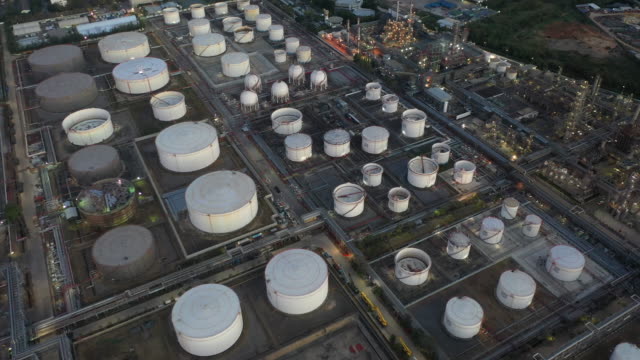Food stuff trading companies in dubai
BlogAre you looking to delve into the world of food stuff trading companies in Dubai? This comprehensive guide will provide you with an in-depth look at the industry, covering everything from market dynamics to the challenges and opportunities that lie ahead. Dubai, known for its strategic location and advanced infrastructure, serves as a global trading hub. The rising demand for diverse food products has made the role of food stuff trading companies increasingly significant. Understanding the essentials, from acquiring a trade license in Abu Dhabi to navigating import/export regulations, is paramount for success in this thriving market. Let’s explore the various facets of this dynamic industry.
The role of food stuff trading companies
Food stuff trading companies are pivotal entities responsible for importing, exporting, and distributing food products. These companies form a vital link in the supply chain, ensuring that various food items reach the market efficiently. Their significance cannot be overstated as they not only meet consumer demand for diverse food products but also contribute to the economic growth of Dubai. Through strategic partnerships and robust logistics, these companies ensure the availability of high-quality food items across the region.
Market dynamics in Dubai
Dubai’s strategic location, coupled with its state-of-the-art infrastructure, positions it as a key player in global trade. The government has implemented policies that facilitate trade, further bolstering Dubai’s status as a major trading hub. The emirate’s commitment to developing free zones and offering incentives to businesses, such as trade license Abu Dhabi, has attracted numerous investors. These economic factors collectively create a conducive environment for food stuff trading companies to flourish.
Consumer trends in Dubai are evolving, with a growing preference for imported goods and healthy food options. As the population becomes more health-conscious, there is an increasing demand for organic and natural food products. This shift in consumer behavior presents lucrative opportunities for food stuff trading companies to expand their product offerings and tap into new market segments.

Key players in the market
Several major players dominate the food stuff trading sector in Dubai. These companies have established themselves as leaders through their extensive market reach and specialization. Here’s a closer look at three renowned companies:
Company A
Company A specializes in importing and distributing premium quality grains and spices. With a robust supply chain and extensive distribution network, they have a significant market presence. Their commitment to quality and customer satisfaction has earned them a loyal client base.
Company B
Known for their expertise in processed food items, Company B has a wide array of products catering to different consumer segments. Their innovative marketing strategies and strong supplier relations have solidified their position in the market.
Company C
Company C focuses on fresh fruits and vegetables, ensuring a consistent supply of high-quality produce. Their strategic partnerships with international suppliers enable them to meet the growing demand for fresh produce in Dubai.
Import and export regulations
Navigating the import and export regulations is crucial for the success of food stuff trading companies in Dubai. Understanding the UAE import laws and complying with the necessary documentation can ensure smooth operations.
The opportunities for exporting from Dubai are vast, with numerous success stories demonstrating the potential for growth. For instance, established companies in Dubai have successfully exported to major markets across the globe, leveraging the emirate’s advanced logistics infrastructure.
| Document | Description |
|---|---|
| Trade License | A mandatory permit for conducting trade activities legally |
| Certificate of Origin | Certifies the country where the goods are produced |
| Health Certificate | Ensures that the food products meet health and safety standards |
| Commercial Invoice | Details the transaction and terms of sale between the buyer and seller |
Technological advancements
Technology plays a transformative role in the food trading industry, with digital platforms and blockchain technology driving efficiency and transparency. Several trends are reshaping the way food stuff trading companies operate:
- Digital Platforms: These platforms streamline the trading process, providing end-to-end solutions from sourcing to delivery. Companies leveraging these platforms can manage their inventories, track shipments, and facilitate transactions seamlessly.
- Blockchain Technology: Blockchain offers enhanced transparency and security in the supply chain. By recording every transaction on an immutable ledger, companies can ensure the authenticity and traceability of their products.
Adopting these technological advancements can significantly enhance the operational efficiency of food stuff trading companies, ensuring they remain competitive in a rapidly evolving market.
Challenges faced by the industry
The food stuff trading industry in Dubai faces several challenges that companies must navigate to succeed. Regulatory hurdles can be complex, with stringent import/export regulations requiring meticulous compliance. Additionally, managing logistics and warehousing can pose significant obstacles, especially given the high standards expected in terms of food safety and quality. Furthermore, staying abreast of changing consumer preferences and adapting product offerings accordingly can be challenging amidst stiff competition.
Strategies to overcome these challenges
Successful companies often adopt a few best practices to mitigate these challenges:
- Regulatory Compliance: Staying updated with regulatory changes and maintaining robust documentation can ensure smooth operations. Engaging with local authorities and participating in industry forums can also provide valuable insights.
- Efficient Logistics: Investing in cutting-edge logistics solutions and collaborating with reliable partners can streamline supply chain management. Implementing advanced warehousing techniques such as cold storage can further enhance product quality.
- Market Research: Conducting thorough market research to understand consumer trends can help companies tailor their offerings. Engaging directly with consumers through surveys and feedback mechanisms can provide actionable insights.

Opportunities for new entrants
For new businesses aiming to enter the food stuff trading market in Dubai, identifying niche markets and building strong supplier relations are crucial. Establishing a unique value proposition can set a company apart from its competitors. New entrants can benefit from the following tips:
- Identify Niche Markets: Focus on specific product categories that have high demand and less competition.
- Build Supplier Relations: Forge strong relationships with reliable suppliers to ensure a steady supply of quality products.
Dubai’s government offers various grants and support programs to assist new businesses. Leveraging these resources can provide a significant boost to new entrants, helping them establish a strong foothold in the market. Furthermore, joining local business networks and chambers of commerce can offer valuable networking opportunities and support.
Conclusion
Dubai’s food trading sector is a burgeoning market offering immense opportunities for both established companies and new entrants. Through strategic planning, understanding of local regulations, and leveraging technological advancements, food stuff trading companies in Dubai can thrive in this competitive environment. As the region continues to grow and evolve, the role of these companies in meeting the diverse food needs will only become more critical, making it an exciting space to watch and participate in.
FAQs
What are the major food products traded in Dubai?
Most traded food products in Dubai include grains, spices, fruits, vegetables, and processed food items. The diverse market demand ensures a wide range of products are imported and distributed.
How can I start a food stuff trading company in Dubai?
Starting a company involves fulfilling legal requirements such as obtaining a trade license, setting up an office space, and complying with import/export regulations. Engaging with local authorities and understanding the regulatory landscape is essential.
What are some of the challenges in food trading in Dubai?
Common challenges include navigating complex regulatory landscapes, ensuring product quality and safety, and managing logistics and warehousing. Staying updated with consumer trends and competition also pose significant challenges.
Are there special regulations for organic food trading in Dubai?
Yes, Dubai has specific regulations for organic foods, emphasizing certification and adherence to international organic standards. Companies must ensure they meet these standards to trade organic products.
How does technology benefit food stuff trading companies in Dubai?
Technology aids in streamlining operations, enhancing supply chain transparency, improving customer experience, and ensuring compliance with regulatory standards through digital solutions. Technologies like blockchain and digital platforms are particularly transformative.
